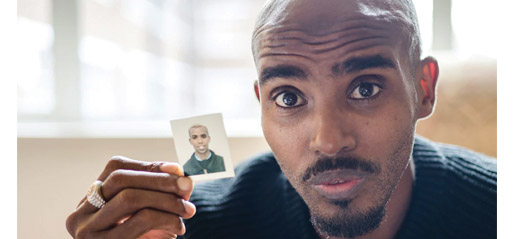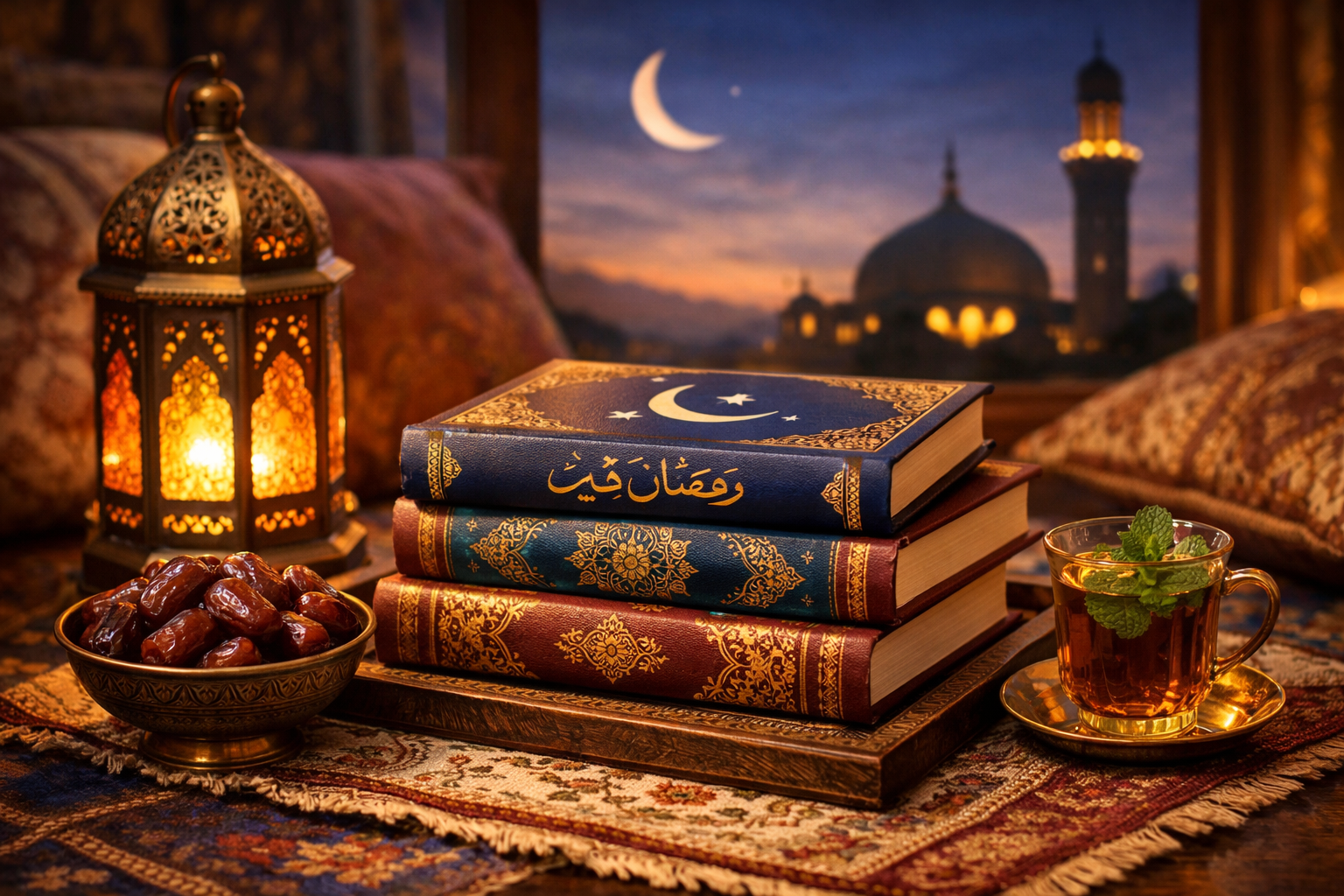
Sir Farah with a pic of himself as a child (Credit: BBC/ The Real Mo Farah)
Nadine Osman
Sir Mohamed “Mo” Farah has won a Bafta TV award for his documentary, which revealed he had been illegally trafficked to the UK as a child.
In the BBC One documentary, titled “The Real Mo Farah,” the four-time Olympic champion, who was born Hussein Abdi Kahin, revealed how he was brought to Britain from Somalia illegally, having assumed the name of another child, after his father was killed in the civil war. Collecting the prize at the event at the Royal Festival Hall on May 15, Sir Farah dedicated the best single documentary award to “children who are being trafficked”.
In his speech, he said: “The kids have no say at all; no child should ever go through what I did. I hope my story shows they aren’t alone; we are in it together.”
He later said: “It is an honour to receive this… I was in control of my career for many years, and I wasn’t in control of the outcome.” His wife, Tania Nell, said: “It was really hard to film, and what motivated us was for us to show our kids what their dad had been through, and it empowered us.”
Film producer Leo Burley added: “Six million people watched this on BBC One, a film about trafficking, and we were really proud that that many people came to this story. I want to thank Mo and his family, who have humanised what has become a really vicious story about trafficking and human debate.”
Though the documentary presented uncertainty over the consequences of Farah making his past public, the Home Office declined to take action to remove Farah’s citizenship.
With the disclosure, Sir Farah became one of the most high-profile victims of child trafficking and modern slavery. Non-profit organisations and British columnists commented on how the disclosure may encourage other victims to seek help, and how the film relates to the context of British politics in 2022.
The Home Office’s “hostile environment” for immigrants, the Nationality and Borders Act 2022, and the Rwanda asylum plan have been cited as factors that make it more difficult for child trafficking survivors and asylum seekers to remain in the UK.
The documentary premiered on July 13, 2022, to a universally positive critical reception.
The Independent’s Sean O’Grady rated the documentary five stars out of five, praising each “searing emotional confession” and “revelation” as leaving the viewer “punchdrunk” and “bewildered”. O’Grady approved of the choice to omit a voiceover and let the information be given by the people involved.
He wrote that Farah’s teachers and the woman who took him in after escaping domestic servitude were “heroes” and that the documentary is “plainly, if not intentionally”, at odds with the government’s immigration laws.
The Guardian’s Stuart Jeffries complimented the “beautifully made” film for being “often heartbreaking,” with particularly moving sequences of Farah reuniting with his mother and the Somali woman who raised him. Jeffries described it as “resonant” for victims of human trafficking and people who have criticised the Conservative government for “demonising illegal immigrants.”
Emily Baker of i praised it as a “delicate, purposeful film that told an extraordinary story without sensationalism”, underpinned by bravery of Farah in speaking out. Baker found the documentary emotional, including a “beautiful” moment where Farah hugs his family and a “moving point” where they visit his father’s grave. She said that it “spoke volumes about the trauma carried by victims of domestic servitude and trafficking”.
Morgan Cormack of Stylist found it “a timely exploration of immigration and identity”, noting that Farah’s “simple admission of wanting to feel normal” was relatable to many immigrant children. Cormack said that the discussions over possible revocation of Farah’s citizenship are “difficult viewing”, and the “real tearjerker moment” is when Farah’s mother explains she did not know he would be taken to England.


